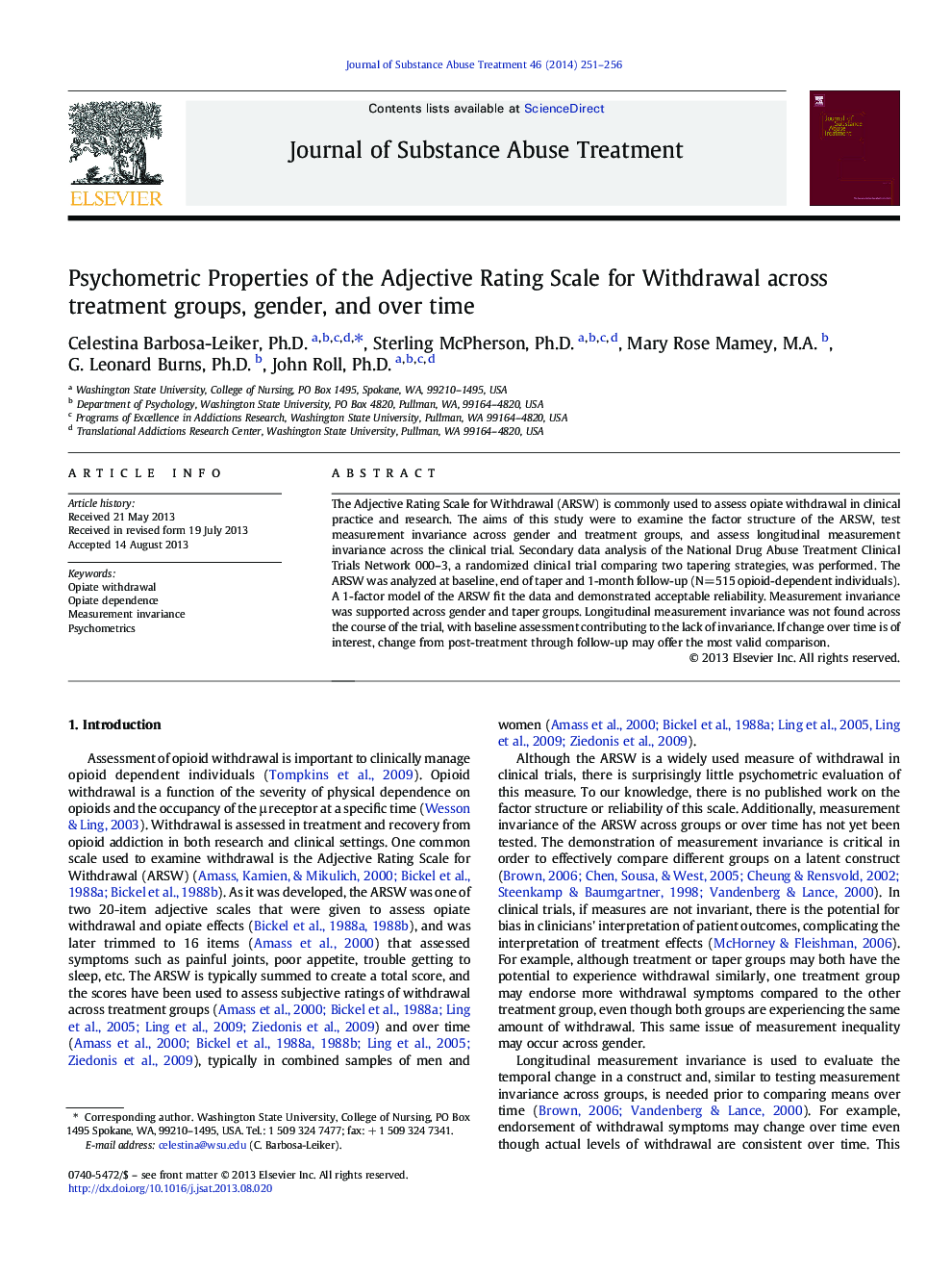| Article ID | Journal | Published Year | Pages | File Type |
|---|---|---|---|---|
| 329726 | Journal of Substance Abuse Treatment | 2014 | 6 Pages |
The Adjective Rating Scale for Withdrawal (ARSW) is commonly used to assess opiate withdrawal in clinical practice and research. The aims of this study were to examine the factor structure of the ARSW, test measurement invariance across gender and treatment groups, and assess longitudinal measurement invariance across the clinical trial. Secondary data analysis of the National Drug Abuse Treatment Clinical Trials Network 000–3, a randomized clinical trial comparing two tapering strategies, was performed. The ARSW was analyzed at baseline, end of taper and 1-month follow-up (N=515 opioid-dependent individuals). A 1-factor model of the ARSW fit the data and demonstrated acceptable reliability. Measurement invariance was supported across gender and taper groups. Longitudinal measurement invariance was not found across the course of the trial, with baseline assessment contributing to the lack of invariance. If change over time is of interest, change from post-treatment through follow-up may offer the most valid comparison.
